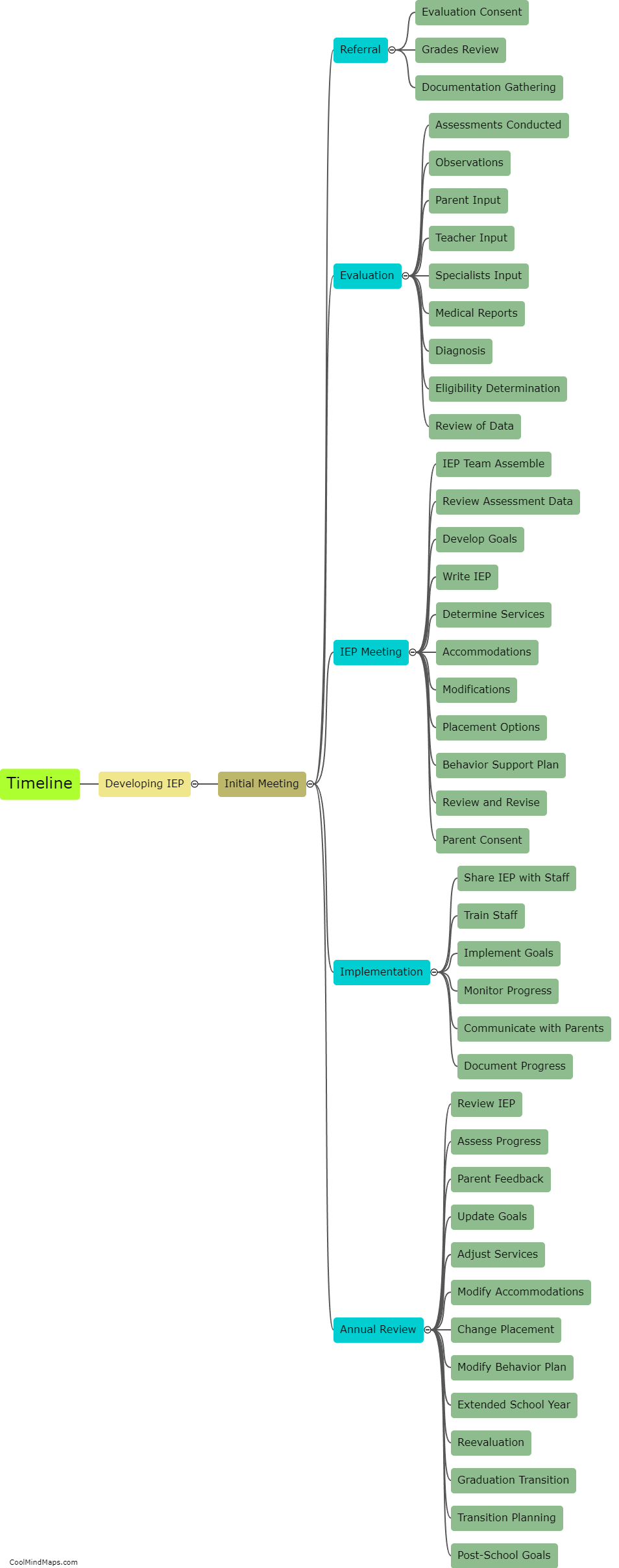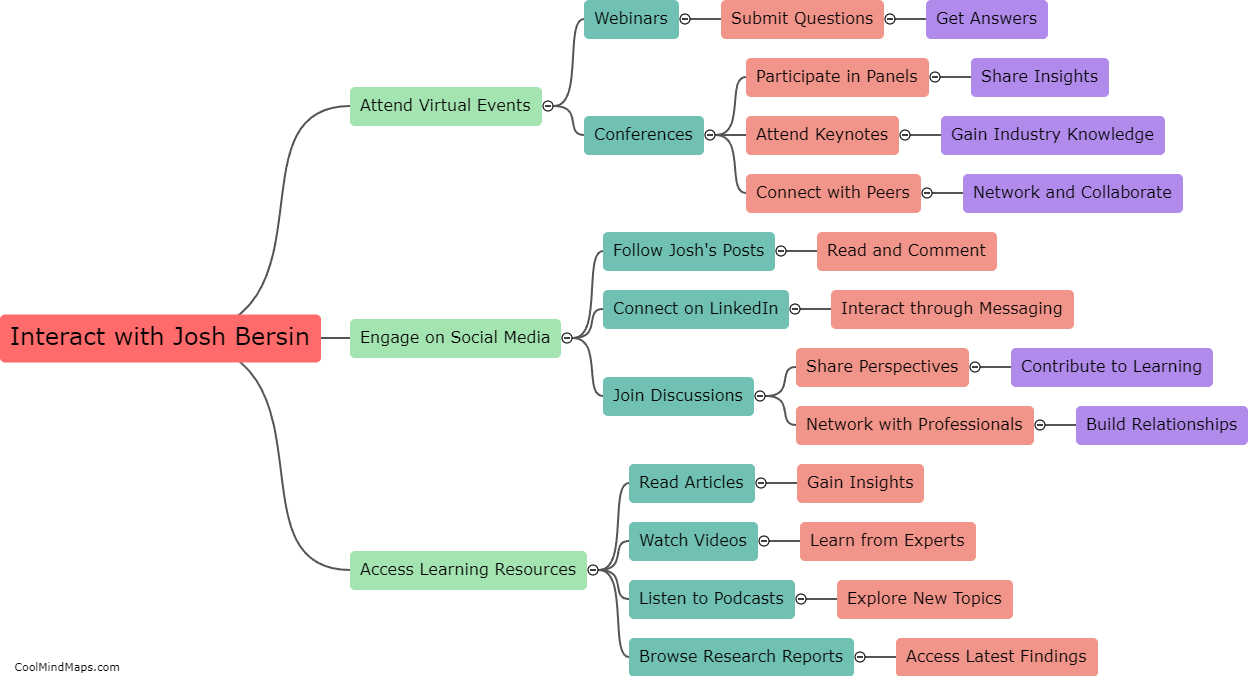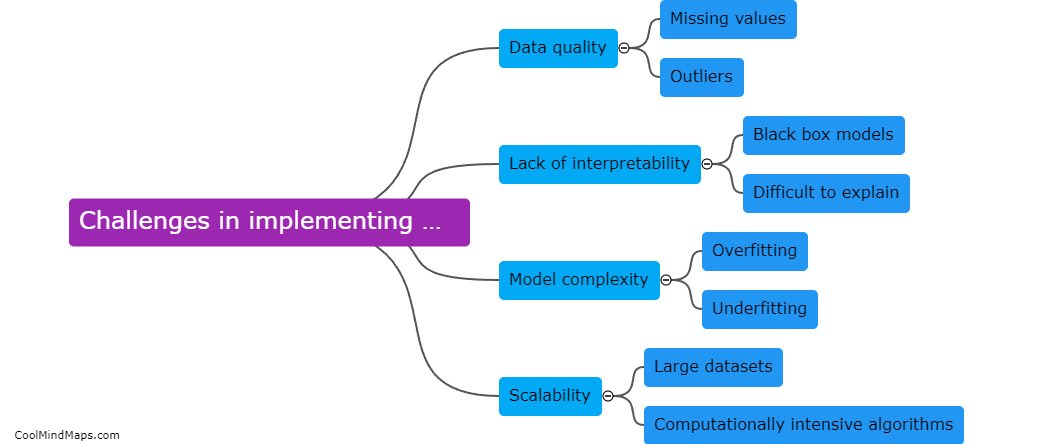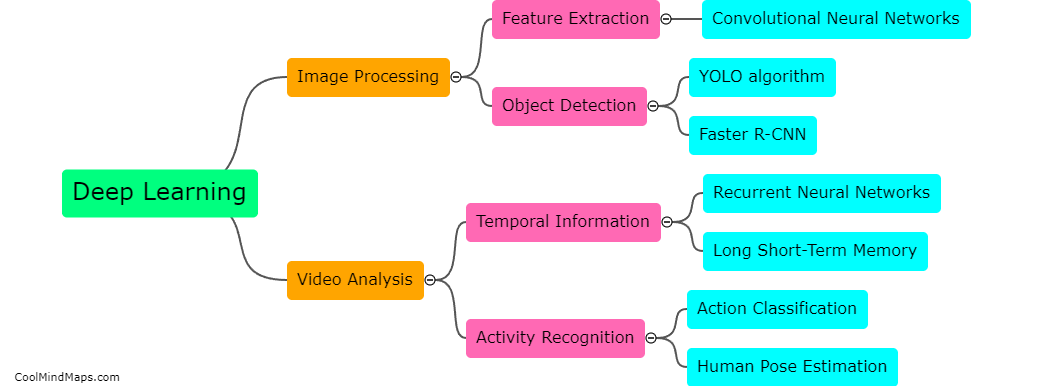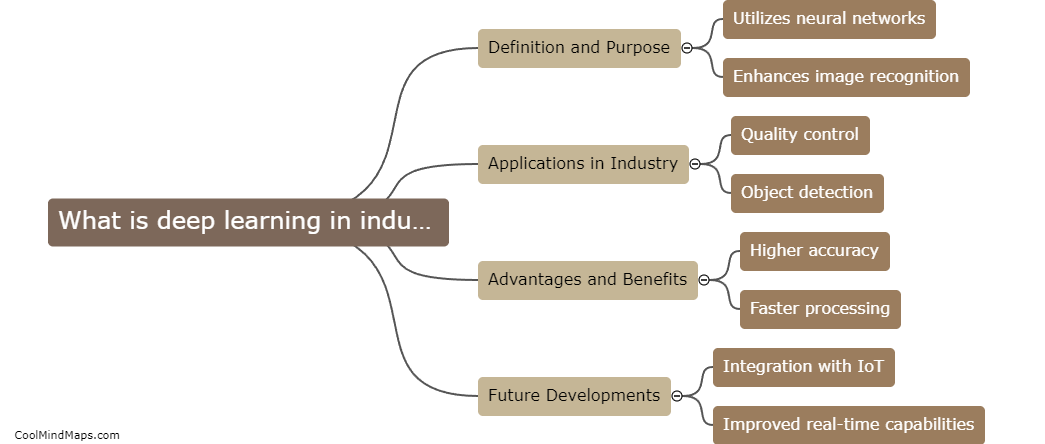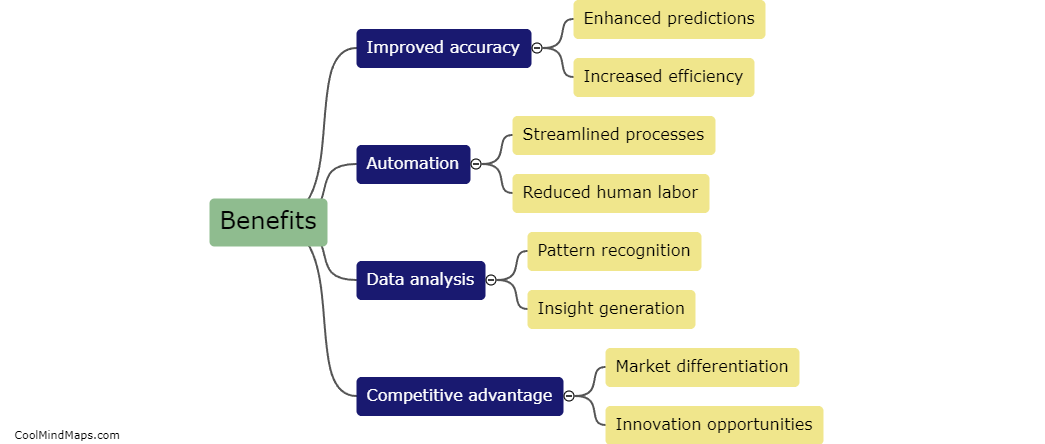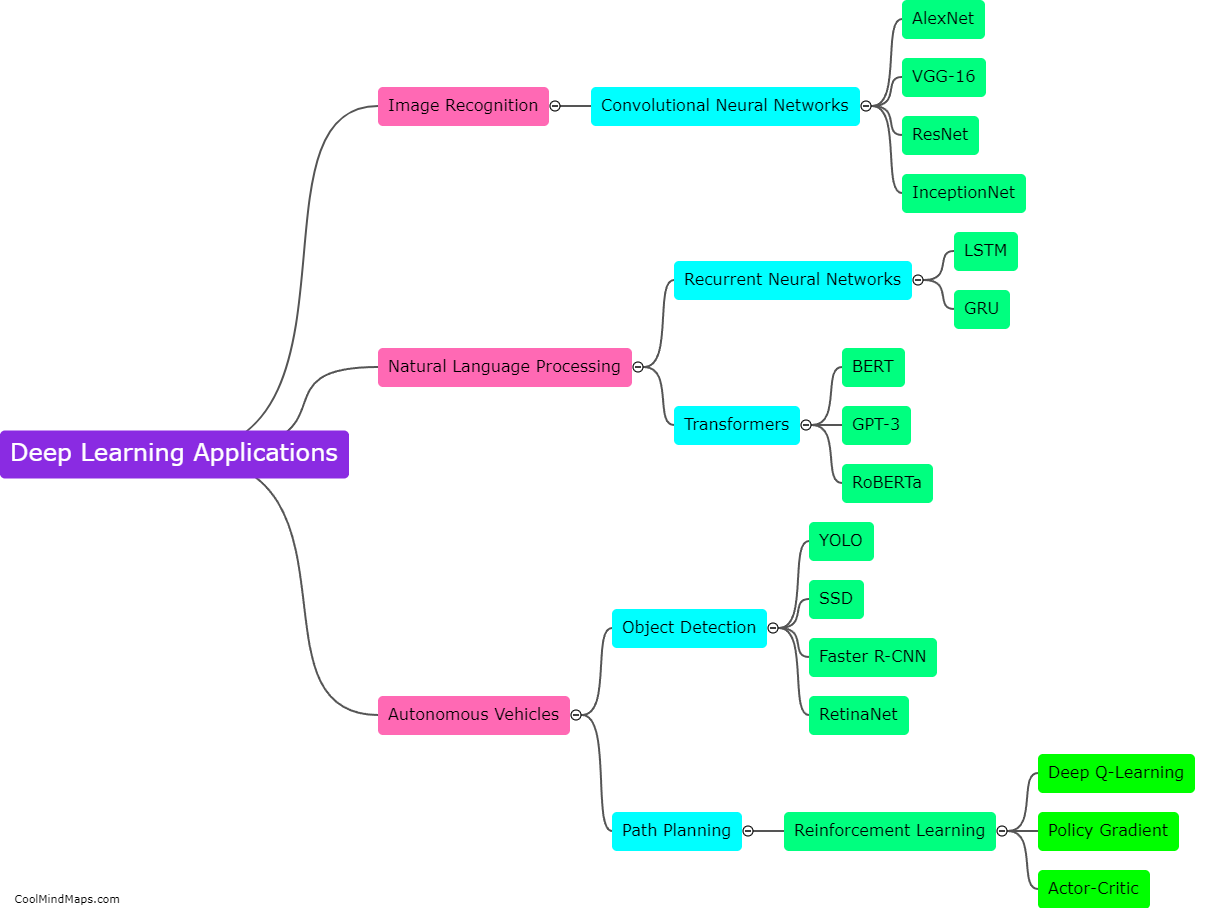How can deep learning improve efficiency of sensors?
Deep learning can greatly improve the efficiency of sensors by enabling them to process and analyze large amounts of data in real time. By utilizing machine learning algorithms, sensors can quickly identify patterns, anomalies, and trends within the data they collect, allowing for more accurate and timely decision-making. This can lead to enhanced performance, reduced downtime, and increased productivity in various industries such as manufacturing, healthcare, and agriculture. Additionally, deep learning can help sensors adapt and learn from new data, resulting in improved overall efficiency and effectiveness of sensor systems.

This mind map was published on 13 May 2024 and has been viewed 72 times.
